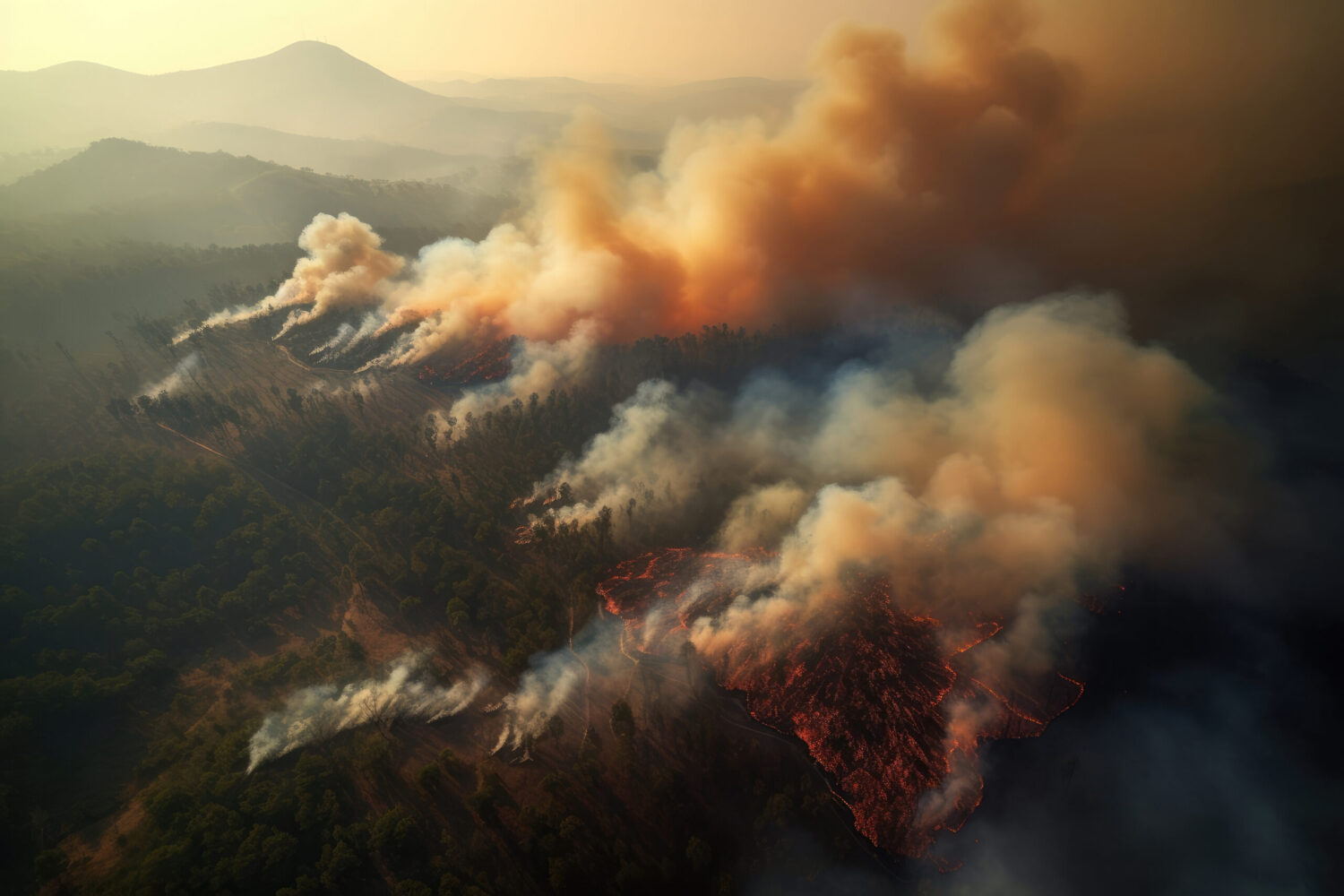
Industry News
News
Canada releases seasonal outlook, wildfire projections, emergency plans
April 16, 2024 By CFI Staff
 Aerial photography of a massive forest fire in Canada in 2023. Photo: Adobe Stock.
Aerial photography of a massive forest fire in Canada in 2023. Photo: Adobe Stock. As Canada braces for another potentially devastating wildfire season, the Government of Canada has unveiled its seasonal outlook, wildfire projections, and emergency preparedness measures. The announcement comes in the wake of last year’s historic wildfire season, highlighting the urgent need for proactive measures in the face of escalating climate change impacts.
“This winter, Canadians experienced warmer-than-normal temperatures and widespread drought conditions across the country, adding to existing drought and low-water conditions. The latest seasonal weather outlook indicates that higher-than-normal temperatures are expected for the spring and summer, boosted by El Nino weather conditions. This sets the stage for the possibility of another active wildfire season and other incidents of extreme weather. The warmer than normal winter temperatures and drier than usual conditions may result in some regions – in particular western Canada, eastern Ontario, and southern Quebec – experiencing early, above normal, fire activity this April and May,” the statement said.
The government’s emergency response framework, which begins at the local level and escalates as needed to provincial and federal levels, ensures a coordinated approach to disaster management. Following a comprehensive review of lessons learned from last year’s wildfires, the government has ramped up early engagement in wildfire emergency preparedness planning and risk assessments.
Key initiatives include the establishment of an Indigenous Emergency Management Working Group to address Indigenous-specific emergency needs and enhance coordination efforts. Additionally, investments in firefighting equipment procurement, training programs, and vegetation management projects aim to bolster readiness across Canada.
Recognizing the heightened risk posed by climate change, Jonathan Wilkinson, Minister of Energy and Natural Resources, underscored the government’s proactive stance in preparing for the 2024 wildfire season and beyond. Wilkinson emphasized the importance of acknowledging the scientific reality of climate change and implementing measures to mitigate its impact.
The seasonal weather outlook for spring and summer indicates above-normal temperatures, setting the stage for potential wildfire outbreaks, particularly in western Canada, eastern Ontario, and southern Quebec. Additionally, drought conditions may increase the risk of flooding in certain regions, adding to the complexity of emergency response efforts.
In a statement, Harjit S. Sajjan, president of the King’s Privy Council for Canada and Minister of Emergency Preparedness, emphasized the government’s commitment to learning from past experiences and ensuring the safety of Canadians. Sajjan outlined plans for close collaboration with provinces, territories, Indigenous communities, and international partners to combat wildfires and mitigate their impact on lives and property.
“Extreme weather events are becoming far too familiar to Canadians as the impacts of climate change hit our communities. These events are costing Canadians and their governments billions of dollars. We must do more to prepare for the impacts of climate change, and we must speed up our collective efforts to stop adding carbon pollution to this global crisis. After the staggering wildfire season of 2023, we are once again facing the potential for another active wildfire season this year. It is a stark reminder that we need to work together to reduce the risks from our changing climate to keep Canadian communities safe,” said Steven Guilbeault, Minister of Environment and Climate Change and Minister responsible for Parks Canada.
“First Nations are living firsthand the impacts of climate change. 80% of communities are in areas at risk of wildfire. Communities know best what they need to manage wildfires, so we are working with them to build their capacity in a self-determinate way and are implementing traditional knowledge into our strategies. Our message today is clear: we will be at First Nations’ side and support their efforts both before, during, and after the wildfire season,” said Patty Hajdu, Minister of Indigenous Services and Minister responsible for the Federal Economic Development Agency for Northern Ontario.
As Canada faces the realities of a changing climate, the government said it remains steadfast in its commitment to protecting communities and adapting to evolving environmental challenges. Through coordinated action and strategic investments, Canada aims to navigate the upcoming wildfire season and build resilience in the face of climate uncertainty.
Print this page